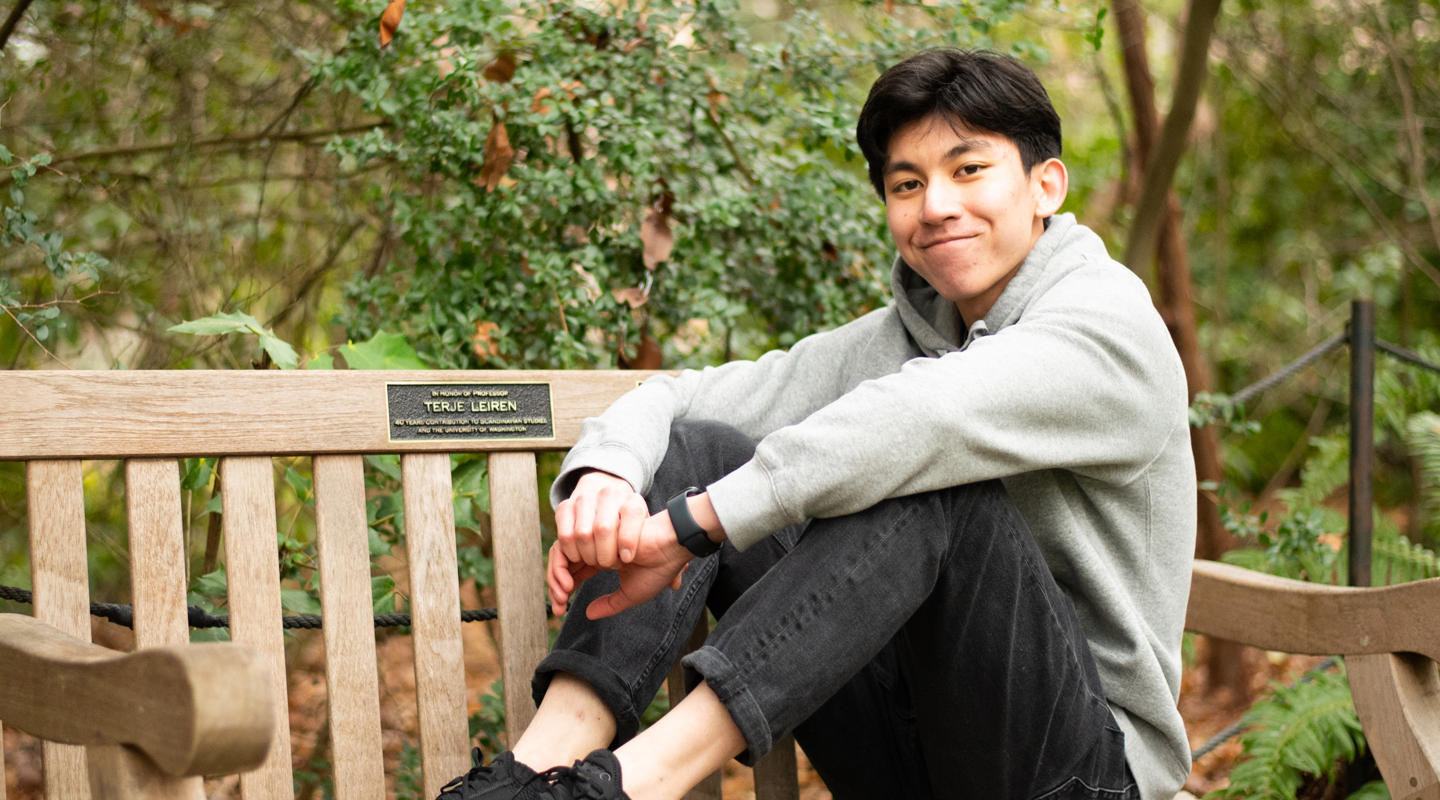Julius Cecilia has found it hard to watch his sister, who has life-threatening food allergies, end up in the hospital repeatedly. He wanted to find a way to make life easier for her and for other people who suffer from similar conditions.
Cecilia was looking for a way to help, perhaps by volunteering, when the pandemic hit and he was stuck at home. Instead, he began exploring the options for technology that could help. He started learning to code and experimented with creating an app that could help his sister navigate her food allergies. This work led him to discover Informatics and the University of Washington Information School. He was interested in how the iSchool’s undergraduate program combined an education in technology with a focus on using tech to help people.
Cecilia, who will graduate in early 2024, is focused on using technology to make the world better for people with health challenges. He was a recipient of a scholarship from the Hope Student Support Fund in Informatics for the 2022-23 academic year.
During his time at the iSchool, Cecilia said, he has appreciated how his education has helped him understand the importance of accessibility and inclusivity. And he’s had plenty of chances to practice that work in his classes and internships.
In his classes, he’s been able to work with fellow classmates to create prototypes, including a mental health app and a shopping site catering to people with food allergies.
“I like that the iSchool has an emphasis on teamwork and collaboration,” he said. “They prepare us with real-world projects and prepare us well in that teamwork environment. Informatics jobs are a lot of team-based work.”
Cecilia has completed software engineering internships for three companies during his time at the iSchool. He worked for a Seattle startup, Chimerocyte, to help create a web application to support the company’s work on cancer diagnostics and therapies for patients recovering from COVID-19. He also worked with a California company, IQAir, to improve website experiences on the company’s website. Most recently, Cecilia interned with Adobe in Seattle, to improve customer support processes. He’ll return to work with Adobe again this summer.
Cecilia is proud that’s he’s been able to put what he’s learned about value-centered and user-focused design to work through his internships. He’s brought the iSchool’s focus on privacy, ethics and inclusion to the companies. When he was working with Chimerocyte, for instance, he was able to raise concerns about how feedback from various users was being considered. He made suggestions, which the company adopted, to make the process more inclusive.
“I’m really proud of my educational background,” he said. “It was really telling in my internship how important the values the iSchool teaches are. I’m glad I was able to utilize those values in the real life in my internships.”
Another way that he has been doing that is by working on a personal project, an app that could help people with food allergies order safely at restaurants. Cecilia’s hope is that such an app could help eliminate dangerous miscommunications and also help educate restaurant employees. The app would also allow customers to share their experiences with others, and restaurants could use it promote their ability to accommodate people with allergies.
Cecilia is grateful for the support from the scholarship that’s making it easier for him to complete his studies. And he is looking forward to the rest of his iSchool education, in particular his Capstone project. He’s hoping to work with a company in the medical sector.
“I hope to be a software engineer when I graduate, in a medical firm or the health industry,” he said. “And I’ll keep working on the food allergy app. It really aligns my interests and could potentially save lives.”
